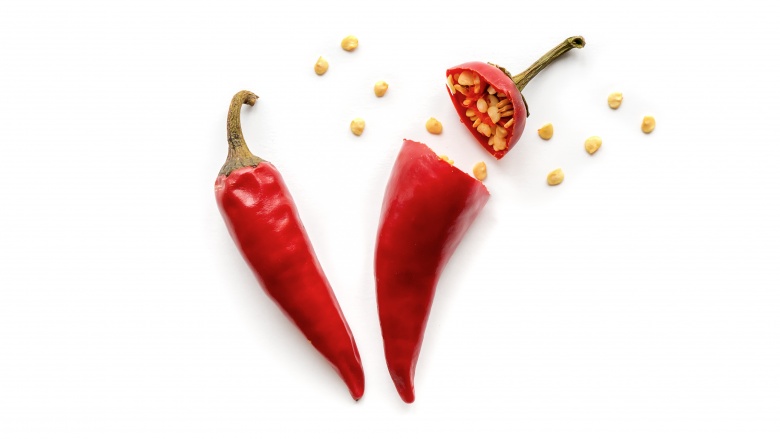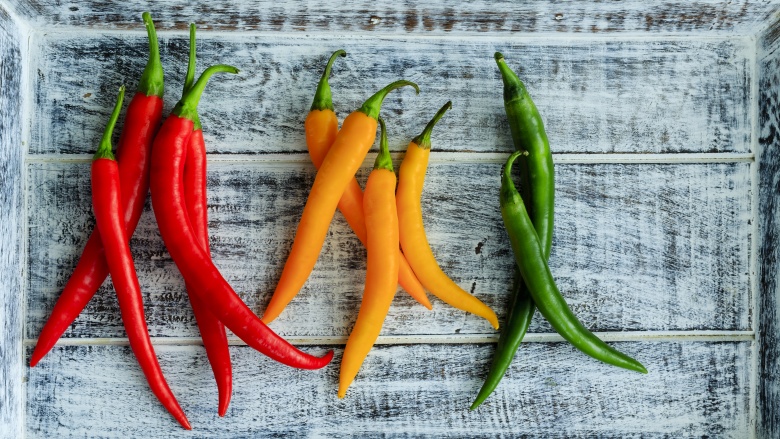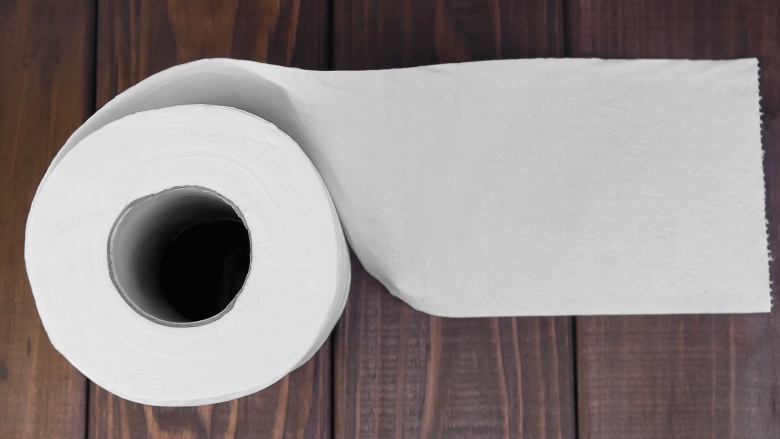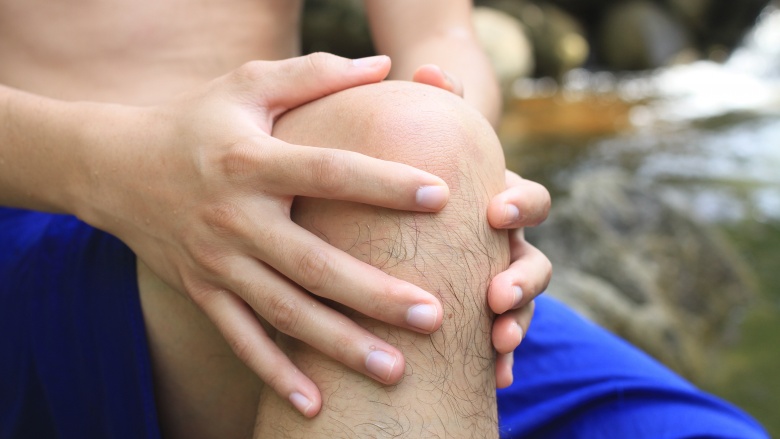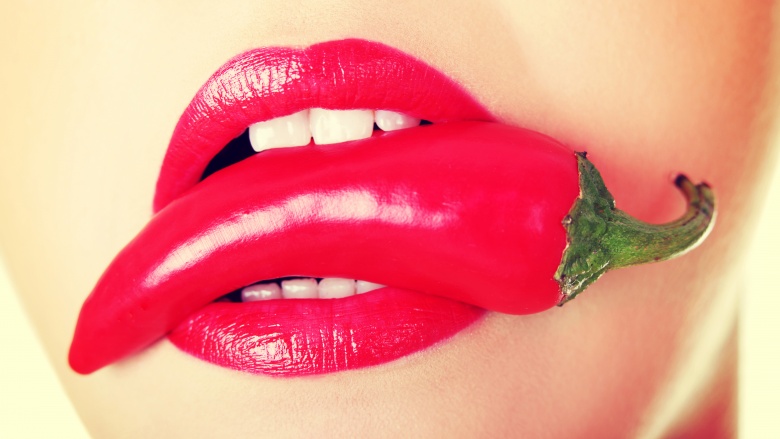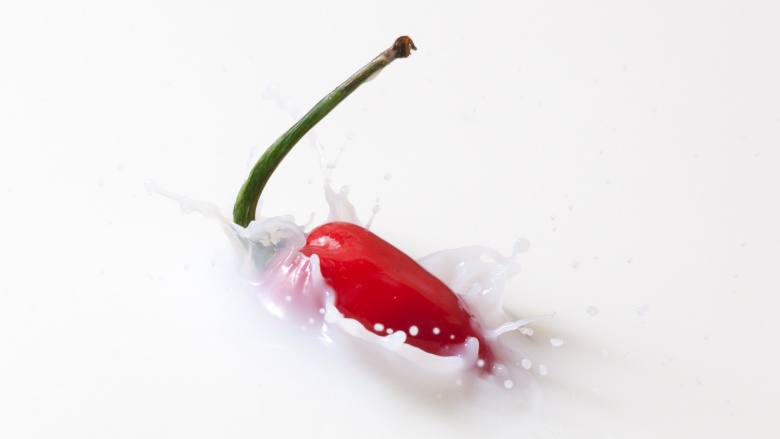What You Need To Know Before You Eat Any More Hot Sauce
Nothing adds excitement to your meal like a drizzle of hot sauce. Americans have caught on to this phenomenon big time. In fact, hot sauce production is a $1 billion industry, showing no sign of slowing down. Not only do we add it to our burritos and chicken wings, but we use it to spice up everything from our morning eggs to our mac and cheese dinners. But chances you probably don't know everything there is to know about this popular condiment. Here are a few things you should know before you eat any more hot sauce.
The heat doesn't come from the seeds
Many people mistakenly think that avoiding the seeds of the hot pepper means they can avoid the heat, but that's not how it works. The heat is actually from capsaicin, a colorless, odorless oil, found mostly in the membranes and the ribs inside the pepper. So leaving out the seeds when you make your hot sauce won't help much when you're using the rest of the pepper anyway. The heat from the capsaicin is measured on the Scoville scale, a chart created by Wilbur Scoville in 1912. The chart uses human test subjects, leaving it open for error, but it's still a method widely used today. The hotter the peppers rank on the Scoville scale, the hotter the sauce they make.
It's good for you
Chili peppers, the variety of peppers used in hot sauces, are packed with lots of vitamins and minerals, including potassium, copper, and vitamins A, B-6, C, and K. They're also rich in antioxidants, which can protect against many chronic diseases, may reduce cancer risk, and has been known to improve eye health.
Hot sauce can hurt
The whole point of hot sauce is the heat, but it can be too much for some people to stand. The intense burning may be all in fun at first, but it can lead to inflammation, swelling, and severe abdominal pain in high amounts. For some, it can even lead to diarrhea, cramps, and other symptoms of abdominal distress. Despite all that, the risk is worth it for some hot sauce-lovers who don't mind paying the price every now and then.
It can burn both ways
This may be a delicate topic for some, but fans of hot sauce know that it usually burns coming out just as much as it does going in. This is due to the fact that the particles that make it spicy don't break down much in your gut, so they're still intact when they pass through the anus during bowel movements — some parts of which are lined with cells similar to what are in your mouth. You can decrease this effect by limiting your fatty food intake when you indulge in hot sauce, or bulking up the fiber on your menu.
Hot sauce can relive pain
At first taste, that hot sauce burns, but eventually it leads to more of a numb feeling right? Hot sauce daredevils who have spent an evening not feeling their tongues can attest to this. But doctors are thinking this numbness might have other, more helpful uses. Since it seems to dull pain receptors for a while, doctors have experimented with hot sauce in reducing pain after surgery for some patients by dripping it into wounds before closing them up. That may sound incredibly painful, but patients are not conscious during the application, and in a 2007 study, patients reported reduced pain and used less morphine in the first two weeks after surgery than those who didn't have the capsaicin treatment. Another study found that while hot sauce aggravates heartburn and other acid reflux symptoms, it eventually dulls those symptoms after continued ingestion. Your favorite condiment may hurt you now, but if you fight through the pain for a while, it just might help. It's probably a good idea to speak to your doctor before running your own experiment, though.
It can help you lose weight
We're always looking for the next miracle food that might boost our weight loss, right? Some studies say that capsaicin, the oil that gives chili peppers (and in turn, hot sauce) their much-loved kick, may just be the miracle we're looking for. Turns out some foods that pack heat give our metabolism a short-term boost, with chili peppers being pretty high on that list. It is just a temporary change, though, which is where the other side effect comes in. Eating spicy foods like hot sauce can also decrease our appetite. This means that if you eat a meal drizzled with hot sauce, your meals that follow may be smaller in size. Sounds like a dieter's dream, if you ask me.
Hot sauce may be an aphrodisiac
Experts tend to go back and forth on whether certain foods can be aphrodisiacs, but sex expert Psalm Isadora says some foods can make a difference. In an interview with Bazaar, she said the heat from peppers improves blood flow and circulation, both of which can be helpful for getting in the mood. It also mimics arousal by inducing sweating, making your heart beat faster and stimulating the release of endorphins — all things that can make you feel a lot more sexy. Whether or not it actually works just depends on the person, but the fun is in the trying, right?
Water won't help
After a particularly painful bite of hot sauce, your instinct may be to reach for a tall glass of water, but that's actually the worst thing you can do. It's the oil in the peppers that causes the pain, and we all know oil and water don't mix. In fact, it'll probably make the pain worse instead of better. Next time your mouth is on fire, reach for a glass of milk or a spoonful of ice cream. The molecules in the dairy products will help dissolve the heat-causing oils, making your mouth a lot more tolerable after just a few sips.

